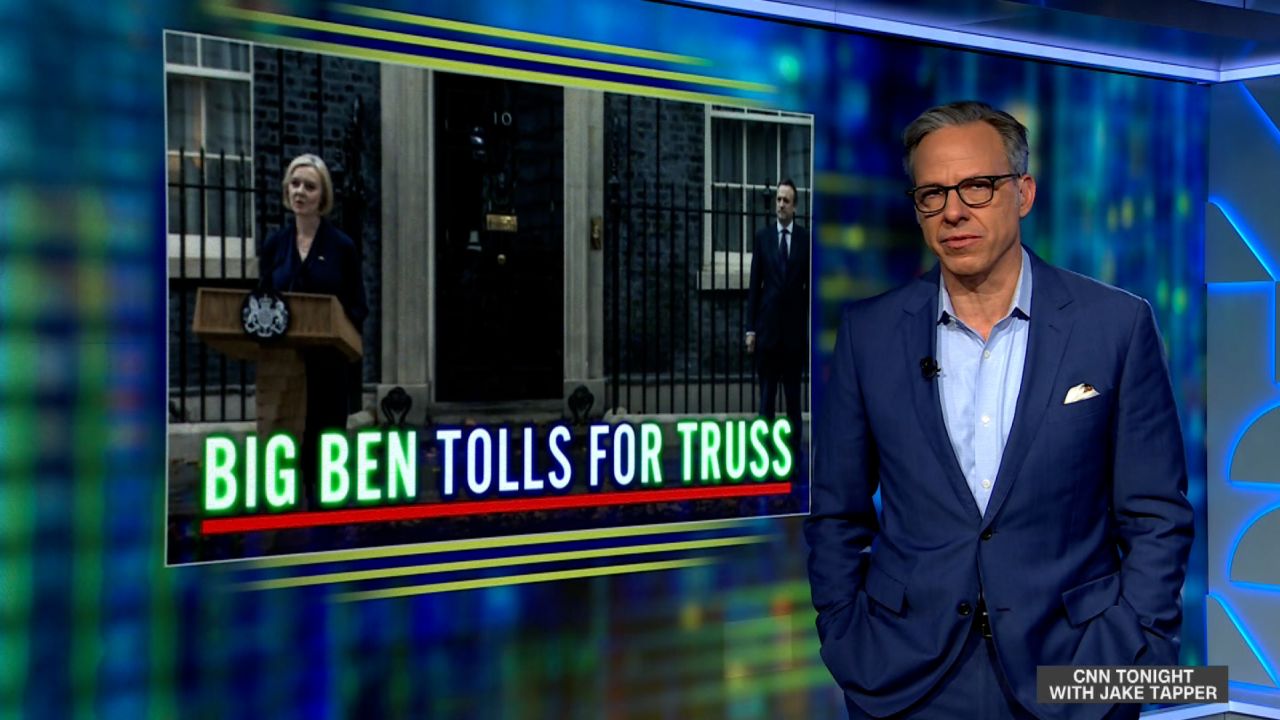Editor’s Note: Sign up to get this weekly column as a newsletter. We’re looking back at the strongest, smartest opinion takes of the week from CNN and other outlets.
In 1970, a protester in London, angered by the cancellation of a cricket tour, threw an egg at UK Prime Minister Harold Wilson, the leader of the Labour Party. His Conservative Party rival, Edward Heath responded, “This was a secret meeting on a secret tour which nobody is supposed to know about. It means that there are men, and perhaps women, in this country walking around with eggs in their pockets, just on the off-chance of seeing the Prime Minister.”
The current UK Prime Minister Liz Truss didn’t get egged last week, but she was not treated gently. Truss faced the indignity of having her tenure compared to the shelf life of a head of lettuce after her economic policies tanked the British pound. On Thursday, she announced her resignation after just 45 days in office.
“What a six weeks it was,” Rosa Prince noted, “marked by the death of a monarch and installation of a new king, a fiscal plan that crashed the markets and caused a run on the pound, the abandonment of her entire policy program, sacking of a chancellor and home secretary, loss of confidence of virtually all her MPs, reports of violent bullying in Parliament and opinion polls suggesting an existential wipe-out for her party at the next election…”
“Rather than build bridges by seeking to unite the party and bring rival factions into her government, she created further resentments, triggering immediate plotting. Installing allies into key Cabinet posts left her open to the charge that her team was both inexperienced and maverick,” Prince observed.
The ministerial position once held by fabled figures like William Gladstone, Benjamin Disraeli, David Lloyd-George, Winston Churchill, Clement Attlee and Margaret Thatcher had already been whittled down in public esteem by the shambolic leadership of Boris Johnson. But Truss’ poll ratings were the worst ever recorded, even lower than Johnson’s. (Johnson was even described as a potential candidate to replace Truss, but on Sunday, the UK’s PA Media reported that he will not enter the race.)
“The UK is turning itself into a third-rank power following its disastrous decision in 2016 to vote for Brexit and pull out of the free trade zone of the European Union,” wrote Peter Bergen.
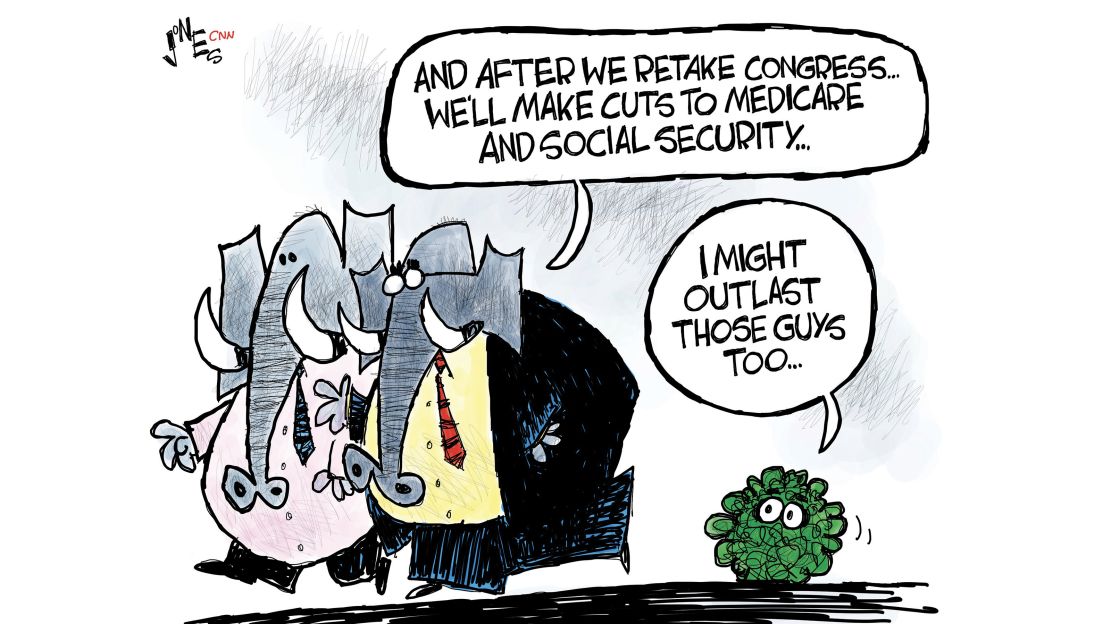
Brexit “has proven to be an economic debacle. Many jobs in the UK that would have been filled by Europeans who were formerly free to move to Britain for work are going unfilled in sectors such as construction, farming, nursing homes, and restaurants. Since the Brexit vote six years ago, the UK’s per capita income has grown by only 3.8% in real terms, while the EU’s has grown by 8.5%, according to the Organization for Economic Cooperation and Development.”
Bergen argued that America’s serious troubles pale by comparison to those of the UK, Iran and Venezuela and that “Russia and China – the two nations with which the United States strives most regularly for global influence – have suffered recent dramatic declines in their standing.
“By invading Ukraine and failing to achieve its war aims, Russia is demonstrating that it is no longer a great power.”
The Liz Truss story also has implications for US politics. “Failing to prepare public opinion for her proposals meant there was no widespread support for them in any segment of British society,” wrote Henry Olsen in the Washington Post. “Republicans are at risk of making the same mistake if they retake control of Congress. The GOP’s midterm messaging focuses on inflation, crime and immigration, but the party is not telling the public much about what it would do to combat those ills. That might be good politics, but it also means they would have no mandate for significant departures from the status quo. Using the national debt limit next year as leverage to force significant spending cuts, including to Social Security and Medicare, as has recently been rumored, would be as politically disastrous for the GOP as Truss’s supply-side tax cuts were for the Tories.”
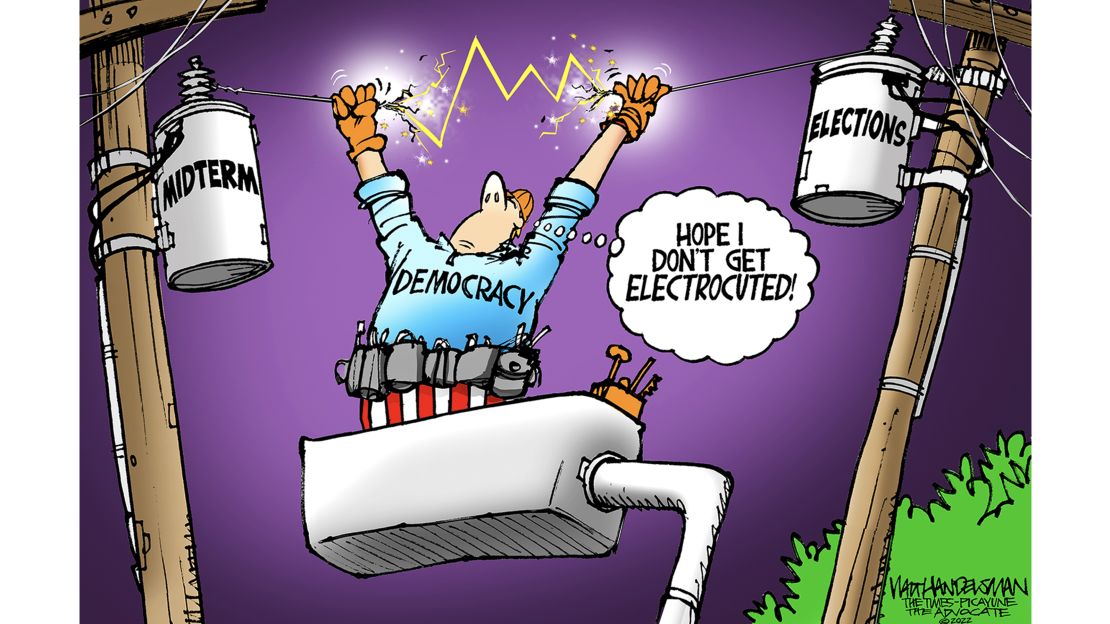
High stakes
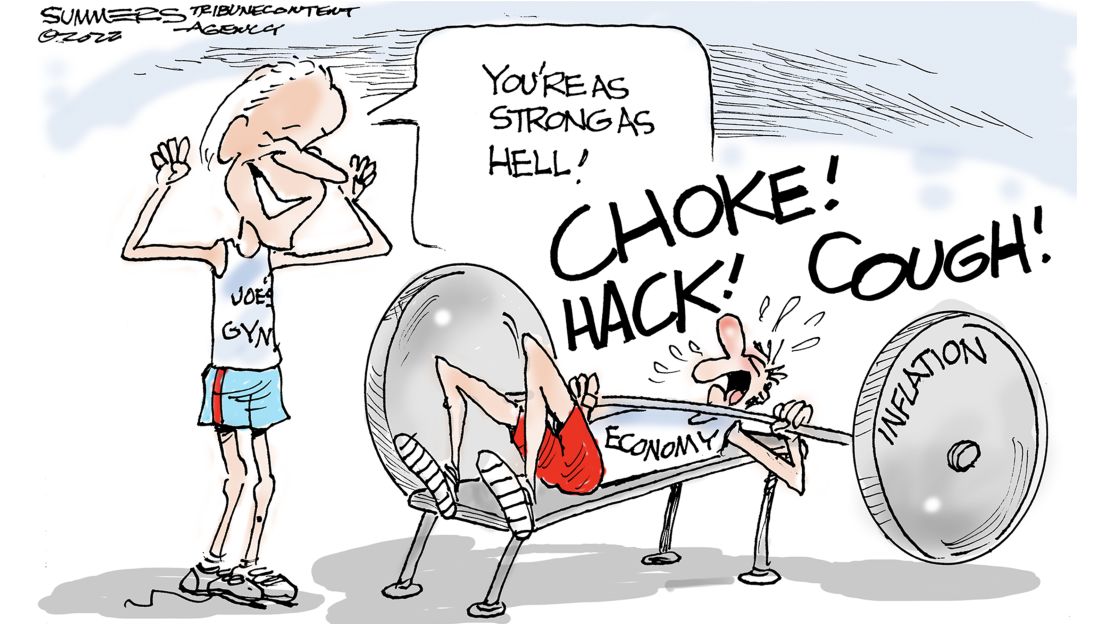
With a little more than two weeks till Election Day in the US, it’s anyone’s guess how party control of Congress will wind up. After Democrats enjoyed a summertime surge in the polls following the overturning of Roe v. Wade and the passage of President Joe Biden’s climate and health measures, the outlook now is widely seen as favoring the Republicans. But the margins in many key races are close.
“High levels of concern about inflation and diminished attention on the electoral impact of the Dobbs decision appear to have hurt the Democrats,” wrote Julian Zelizer. “Though Americans are concerned about the future of our democracy, the issue is not registering at the top of the list – and many voters think the main problem is corruption, rather than threats from the GOP to overturn future results.”
“The implications of a strong showing by the GOP would be enormous. Not only could Republican success potentially shift control of the House and Senate, leaving President Joe Biden to deal with two years of trying to raise debt limits and avoid draconian budget cuts, but the midterms could entrench Trumpism and solidify the direction of the party.”
In Georgia, the state that gave Democrats control of the Senate in 2020, people are turning out for early voting at record levels for a midterm election. On the ballot is a contest between Sen. Raphael Warnock, a Democrat, and his Republican opponent, former football star Herschel Walker.
“Why are so many Republicans still supporting Herschel Walker?” asked Jill Filipovic. “This is today’s Republican party of ‘family values’: A man who wants to outlaw abortion, but whose ex says he paid for hers (and tried to get her to have a second). CNN has not independently verified the allegations from the woman, who has remained anonymous.”
“Prominent Republicans have made clear by campaigning for Walker that the allegations simply don’t matter to them. This is odd: In the words of the anti-abortion movement, abortion is murder. Most Americans, of course, don’t agree, but the stated policy of the Republican Party is that abortion is equivalent to killing a child. And here is a US Senate candidate, accused of facilitating just that. And Republicans have largely shrugged – or suggested that, despite not admitting wrongdoing, Walker should be given grace and redeemed,” Filipovic pointed out.
“Crime is an important issue,” Paul Begala wrote. “There, I said it. The problem is, not enough Democratic candidates are saying it. Some don’t seem to know what to do about this issue…”
“In my many years in politics, I have never seen a more destructive slogan than ‘defund the police.’ … The overwhelming majority of Americans – including most Black Americans and most Democrats – oppose defunding police. Still, the political damage from that slogan has been real.”
“Some Democrats don’t want to talk about crime. They hope most voters’ righteous outrage about the Supreme Court overturning Roe v. Wade will overshadow crime as an issue. I think they’re wrong. A lot of smart Democrats are embracing their strong records on crime, refusing to cede the issue to the party whose leader, Donald Trump, described the January 6 insurrection, in which scores of police officers were injured and five later died as a ‘lovefest between the Capitol Police and the people that walked down to the Capitol.’”
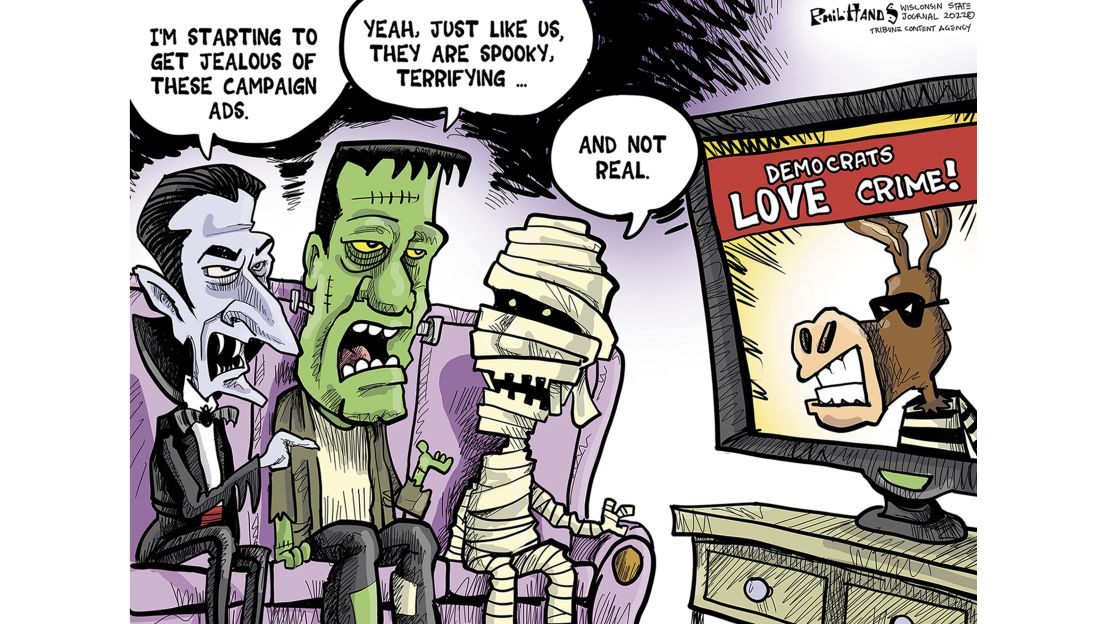
For more:
SE Cupp: MAGA Republicans, please stop calling yourself conservatives
Van Jones and Janos Marton: Florida told them they could vote. DeSantis had them arrested for it
Dean Obeidallah: Democracy is Kari Lake’s real opponent in the Arizona governor’s race
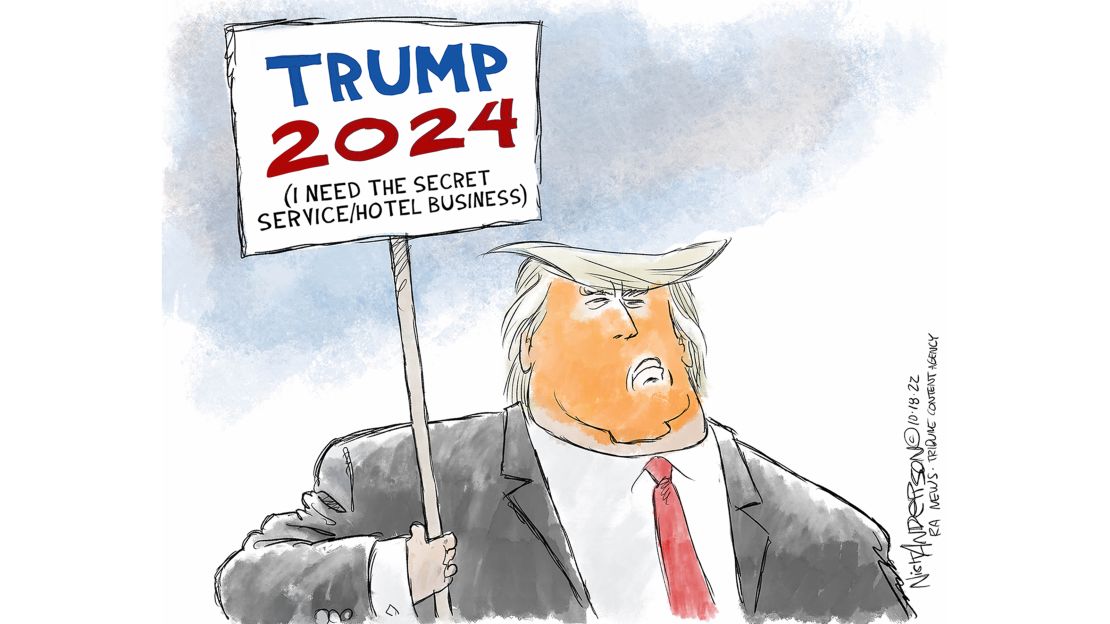
Iran protests
As a 19-year-old college student in London, Ana Diamond traveled to Iran to visit relatives, only to be arrested, she wrote, “on trumped-up charges of espionage for MI6 and alleged ‘infiltration’ of the Iranian political system.” She was sent to the notorious Evin prison. “While in detention, I endured months of solitary confinement, long hours of interrogations and a mock execution,” recalled Diamond, who was eventually acquitted.
Last week’s fire at the prison and the story of Elnaz Rekabi, the Iranian rock climber who competed without wearing a hijab, brought back memories of Diamond’s time in the country.
“While the Iranian authorities are quick to blame recent protests on foreign powers fomenting chaos and disorder inside the country, those of us who have lived in Iran know that this women-led uprising was a long time coming,” Diamond observed.
“Women – including, I suspect, Rekabi – are no longer afraid of the prospect of imprisonment. This often happens in totalitarian states when life outside prison still feels like imprisonment, and there is very little left to lose.”
At climate’s mercy
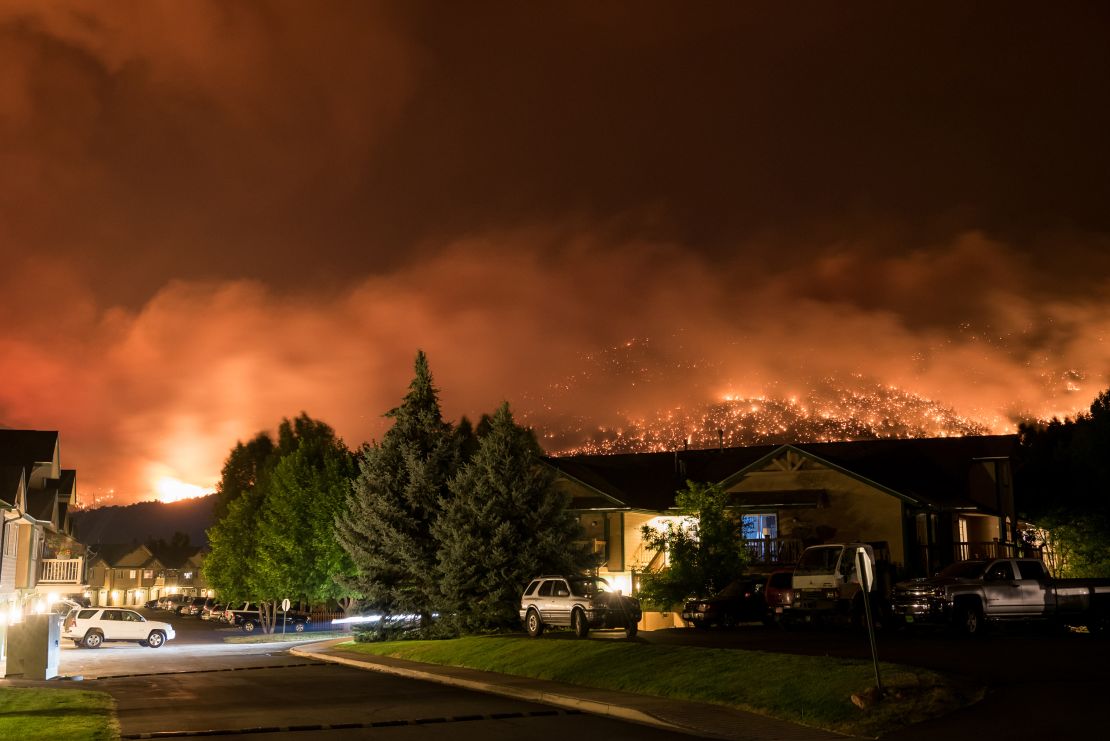
Katherine Keel lives in the Rocky Mountain town of Basalt, Colorado. A former Division 1 swimmer now training to be a paramedic, she moved five years ago to a rural community very much affected by climate change.
“Major roads close regularly due to flooding and mudslides, cutting off our town from the resources of the city. Most summers, smoke inhalation is an inevitable part of recreating outdoors, and it’s become commonplace to check the air quality index daily to see if it’s safe.”
Writing for CNN Opinion’s series, “America’s Future Starts Now,” she noted, “I’ve taken up fly fishing as a hobby, and Colorado Parks and Wildlife advises anglers to refrain from fishing when the water temperature in our rivers hits 67 degrees – as it places high stress on the fish. Tourism is down when snow totals are low in the winter, which affects a major source of income for my rural community.”
“And then there are the wildfires.”
Keel is far from alone. A third of American adults have been personally affected by an extreme weather event in the past two years, according to Gallup.
“After decades of stalling,” wrote Jonathan Foley and Jamie Alexander of Project Drawdown, “the federal government is finally taking decisive action on climate change. The recent passage of the Inflation Reduction Act and other climate-related legislation has set the stage for significant progress toward cutting greenhouse gas emissions and building America’s renewable energy future.”
“It’s a great start, but federal policy alone won’t get the job done. Bringing climate solutions into the world at scale requires that every part of the economy bring its superpower to bear: genuine business leadership moving markets, investors and philanthropists shifting capital, workers building solar panels and wind turbines, and cities and states making climate solutions a reality in the places we live and work.”
Sierra Club President Ramón Cruz wrote that “State governments have a crucial role in the equitable implementation of the IRA, as residents of their states increasingly experience the traumas of losing their homes, loved ones and livelihoods through climate-fueled disasters such as wildfires, hurricanes and droughts.
“The impacts of the climate crisis are not confined to either blue or red states, but are felt in communities across the nation. This includes low-income communities and communities of color in Michigan, for example, that are among the most polluted in the country and have higher than average rates of asthma. It includes communities of coal miners suffering from black lung disease and struggling with access to medical care. These communities and many more remain in desperate need of support — which the IRA can provide.”
On the road to health
Chimére L. Smith, a middle-school teacher, saw the flaws in America’s health system firsthand while experiencing a severe case of long Covid. “My symptoms started with a sore throat and diarrhea, but soon snowballed into a living hell: constipation, burning lungs, dehydration, stomach aches, delirium, memory loss, joint and muscle pain, sleeplessness, weight loss and loss of vision in my left eye. And they wouldn’t stop,” she wrote.
It took a long time for doctors to put Smith on the path to recovery, and that only came after she reached out to public officials, journalists and more doctors, she said. “Now, nearly three years after my Covid-19 infection, I am doing a bit better,” Smith wrote. “I can cook, drive to appointments, read and have hour-long phone conversations with family and friends. My will to live has been restored.” But she is not able to return to teaching.
“Though this virus affected Black and brown people at a higher rate, I rarely saw Black long Covid patient stories at the forefront of conversations about this disease. I only had to look back on my own experience to understand why: To be heard I had to get mad enough to challenge medical authority, ask questions, complain and agitate. I had to disrupt a system designed to exclude me and people who look like me.”
What can be done to improve health care? Start with nurses, wrote Theresa Brown. “When too few nurses work on a hospital floor, patients die who would likely otherwise have survived. That is not hyperbole, but a fact well established by research.”
“Despite this, many hospitals have been understaffing their wards for years. Then, Covid-19 came, confronting overworked nurses with extremely ill patients who were dangerously contagious. Many patients died, and many nurses quit. Of those who remain on the job, many are considering leaving.”
“The crisis in nurse staffing arose largely because many health care entities prioritize profits over healing … Eliminating nursing positions gives hospitals an easy way to cut their labor costs.”
Elon Musk on the world stage
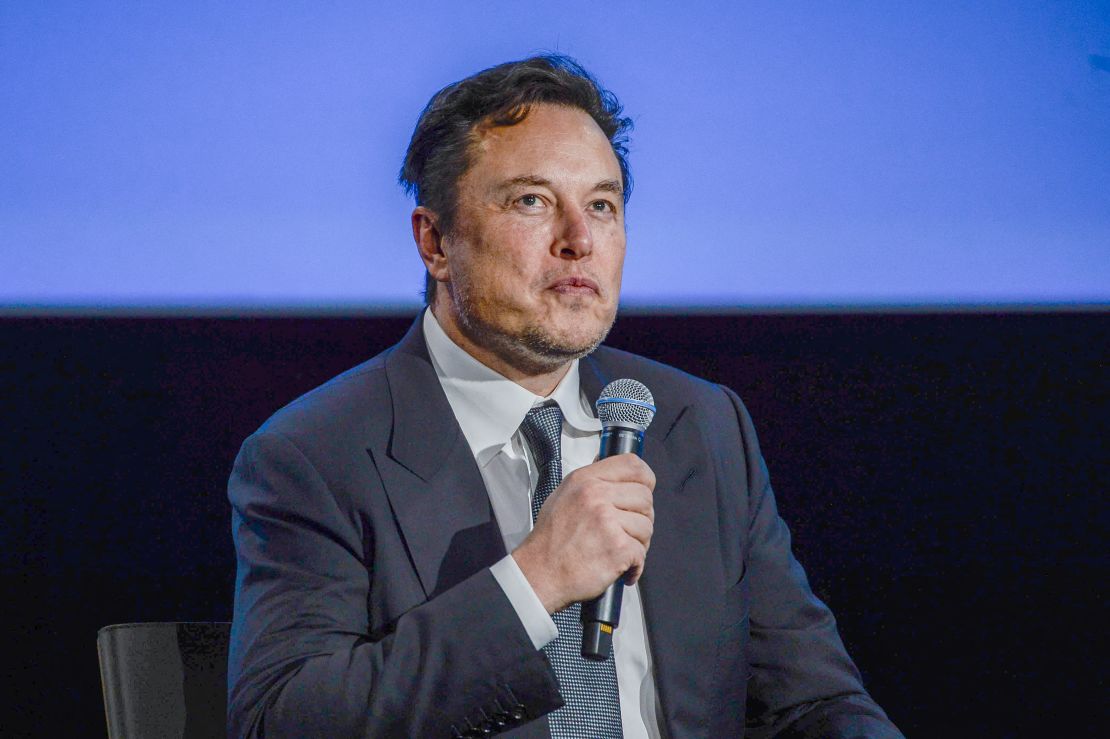
Elon Musk is the richest person in the world and the force behind Tesla and SpaceX, two companies revolutionizing their industries. But he occupies our mind space largely for another reason: more than 109 million people follow his idiosyncratic account on Twitter, the social network he may finally be in the process of purchasing.
“If Elon Musk’s actions didn’t have such powerful consequences,” wrote Frida Ghitis, “we could sit back and enjoy the show. But, since he likes weighing in heavily on consequential matters, the rest of the world has to worry about the impact and wonder whose side he’s on. What are the principles – moral, ethical, financial – that drive his rambunctious forays into world affairs?”
Musk made headlines recently with his ill-received outline of a negotiated settlement of the Ukraine war. He asked his “followers to vote on a plan that looked like it was drafted in the Kremlin, complete with distorted history of Crimea – the Ukrainian territory annexed by Russia in 2014,” Ghitis wrote.
“If a Putin-pleasing proposal was not enough, Musk had a little something for China’s President Xi Jinping. In an interview with the Financial Times, he unveiled his proposal for resolving hostilities between Beijing and Taipei.”
“It’s worth noting that Tesla has a huge presence in China. If Beijing is happy with Musk, it can be good for business.”
“Perhaps it’s not fair to paint the Tesla tycoon as a friend of dictators. Life is not Twitter, and in the real world the Starlink internet service made by Musk’s SpaceX has been an invaluable tool for Ukrainians fighting Putin’s invasion.”
For more:
Kara Alaimo: The chilling problem with how Kanye West and Elon Musk define ‘free speech’
Don’t miss
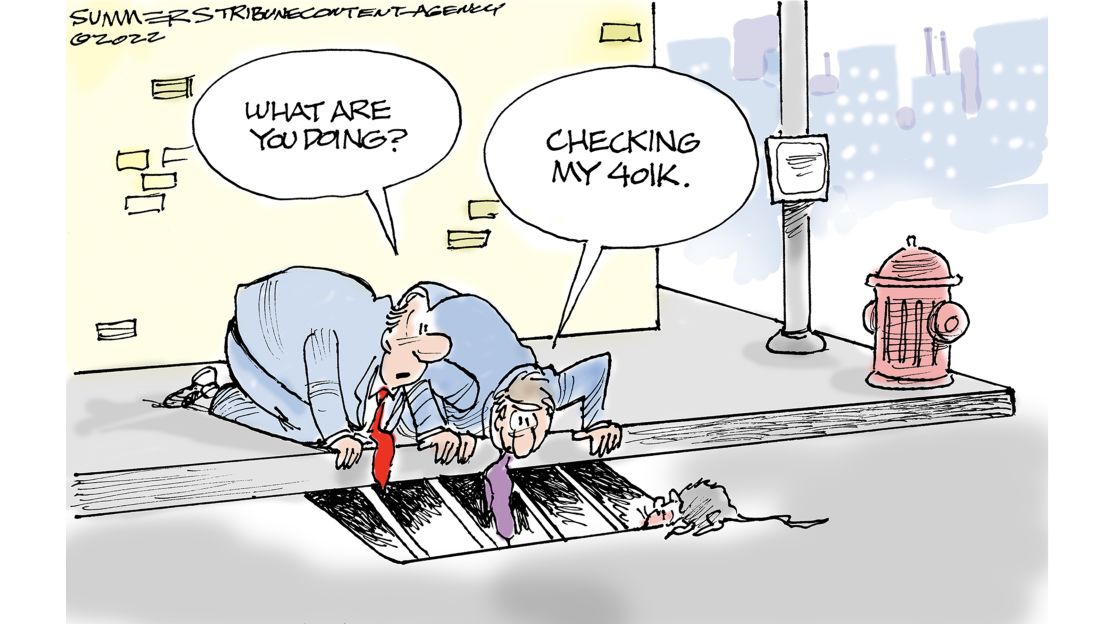
Carly Zakin and Danielle Weisberg: Women can’t wait any longer for gender equality
Naka Nathaniel: Why I’m rethinking Boy Scouts for my son
Kent Sepkowitz: Paxlovid coverage wrongly suggests the experts blew it again on Covid-19
Ben Mattlin: I have a disability that is obvious — and one that’s not
AND…
Half-Earth Day
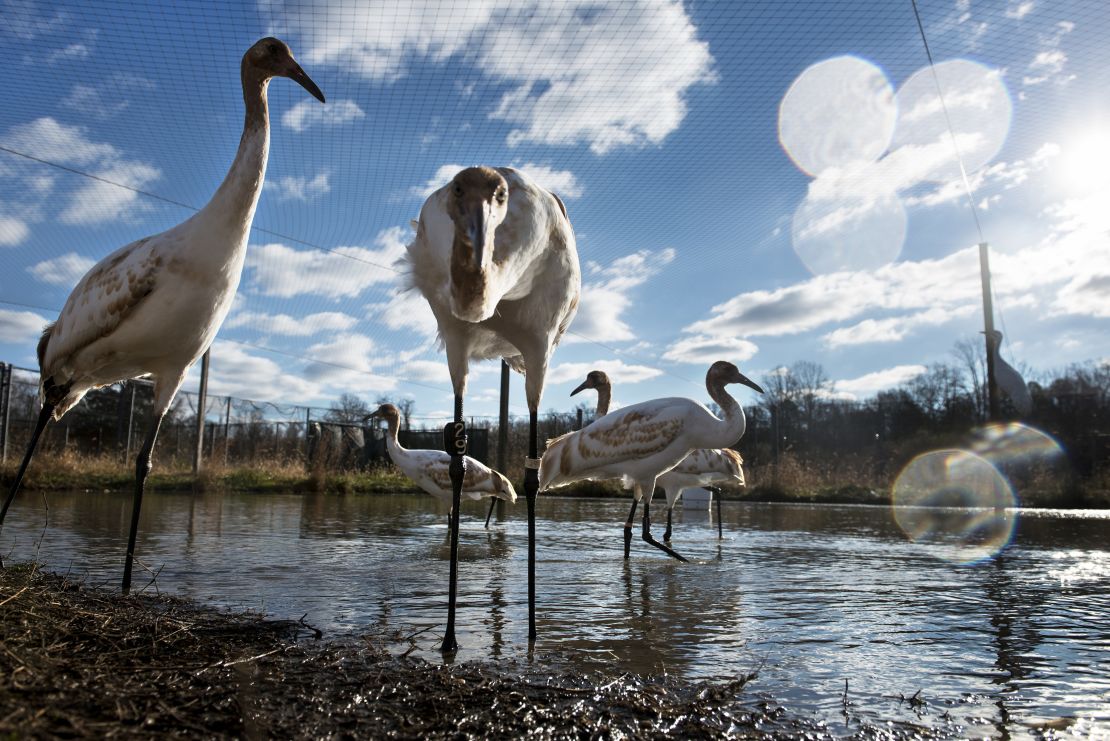
Saturday was “Half-Earth Day,” six months after the April 22 celebration of the Earth’s importance – and fragility. But it’s worth noting for more than an accident of the calendar, wrote Lydia Strohl.
“Half-Earth is the notion that for humans to survive, we must retain earth’s waning biodiversity by reserving half the planet for nature, stabilizing large swaths of ocean, prairie, rainforest and desert to house the birds, insects and ecosystems that affect the water we drink, the food we eat, the air we breathe,” Strohl observed. “The Half-Earth Project was inspired by legendary Harvard biologist E.O. Wilson, who died in 2021 at the age of 92. In ‘Half-Earth: Our Planet’s Fight for Life,’ Wilson wrote: ‘We would be wise to find our way as quickly as possible out of the fever swamp of dogmatic religious belief and inept philosophical thought through which we still wander. Unless humanity learns a great deal more about global biodiversity and moves quickly to protect it, we will soon lose most of the species composing life on Earth.’”
Wilson’s words rang especially true after the World Wildlife Fund’s Living Planet Report noted a week ago that its study of certain vertebrate species had found an average decline of 69% since 1970.
Strohl quoted Elizabeth Gray, the CEO of Audubon, who is in her 50s. “We need to listen to what the birds are telling us. We’ve lost three billion birds in my lifetime. Birds are sentinels for healthy land and water – if birds are in trouble, people are too,” Gray said.
“The canary is singing,” Strohl concluded. “Listen, before its voice is stilled.”
This article has been updated with the news that Boris Johnson will not enter the race to succeed UK Prime Minister Liz Truss.
An earlier version of this article misspelled Elizabeth Gray’s last name.

